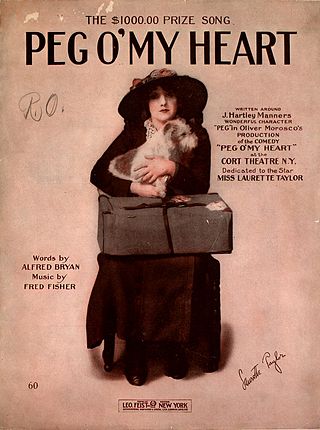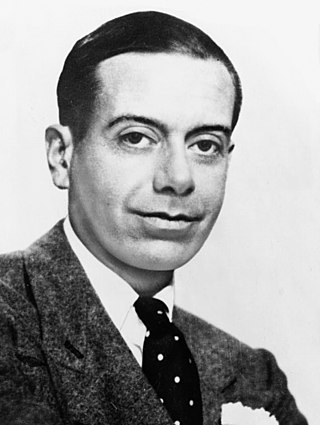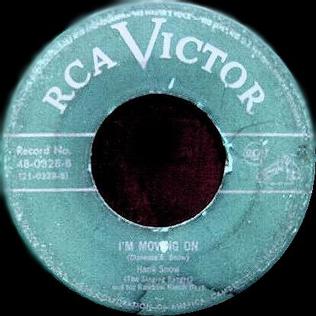"My Bonnie Lassie" is a popular song, by Roy C. Bennett, Sid Tepper, and Marion McClurg. [1]
The tune is a traditional Scottish tune, "Scotland the Brave."
The biggest hit version was recorded by The Ames Brothers, and released by RCA Victor Records as catalog number 20-6208. It first reached the Billboard magazine charts on September 24, 1955. On the Disk Jockey chart, it peaked at #14; on the Best Seller chart, at #11; on the Juke Box chart, at #16; on the composite chart of the top 100 songs, it reached #11. [2]
While it is true that the RCA Victor recording of "My Bonnie Lassie" by the Ames Brothers was released in 1955, the RCA matrix number for the recording is E3VW 1322, indicating that it was recorded in 1953. Had the song actually been recorded in 1955, the matrix number would have started with the letter F. [3]
"My Bonnie Lassie" was the entrance/exit song for professional wrestling superstar "Rowdy" Roddy Piper during his wrestling career. [4]

"Peg o' My Heart" is a popular song written by Alfred Bryan (words) and Fred Fisher (music). It was published on March 15, 1913 and it featured in the 1913 musical Ziegfeld Follies.

"Begin the Beguine" is a popular song written by Cole Porter. Porter composed the song during a 1935 Pacific cruise aboard the Cunard ocean liner Franconia from Kalabahi, Indonesia, to Fiji. In October 1935, it was introduced by June Knight in the Broadway musical Jubilee, produced at the Imperial Theatre in New York City.
"If I Give My Heart to You" is a popular song written by Jimmy Brewster, Jimmie Crane, and Al Jacobs. The most popular versions of the song were recorded by Doris Day and by Denise Lor; both charted in 1954.
"Blues in the Night" is a popular blues song which has become a pop standard and is generally considered to be part of the Great American Songbook. The music was written by Harold Arlen, the lyrics by Johnny Mercer, for a 1941 film begun with the working title Hot Nocturne, but finally released as Blues in the Night. The song is sung in the film by William Gillespie.
"The Naughty Lady of Shady Lane" is a popular song written by Sid Tepper and Roy C. Bennett.
Frank Mills is a Canadian pianist and recording artist, best known for his solo instrumental hit "Music Box Dancer".
"Chattanoogie Shoe Shine Boy" is a popular song written by Harry Stone and Jack Stapp and published in 1950. It is the signature song of Red Foley who recorded it in late 1949. The song has been covered by many artists, including Bing Crosby, Frank Sinatra, and Faron Young who scored a hit with the song in 1959.
"Mule Train" is a popular song written by Johnny Lange, Hy Heath, Ramblin' Tommy Scott and Fred Glickman. It is a cowboy song, with the singer filling the role of an Old West wagon driver, spurring on his team of mules pulling a delivery wagon. As he goes about his work, the driver mentions the various mail-order goods he is delivering to far-flung customers. "Mule Train" was originally recorded by Ellis "Buz" Butler Jr. in 1947. Butler was the original writer of the song along with Fred Glickman. The original recording was released by Buz Butler on Decca Records.
"A Tree in the Meadow" is a popular song. It was written by Billy Reid, and the song was published in 1948.
"You Call Everybody Darlin'" is a popular song. The words and music were by Sam Martin (né Samuel Matzkowitz; 1908–2002), Ben Trace, and his brother, Al Trace, who used the pseudonym, Clem Watts. The song was copyrighted and published in 1946.
"It Only Hurts for a Little While" is a 1956 popular song with music by Fred Spielman and lyrics by Mack David.
"You, You, You" is a popular song published in 1953. The music was written by Lotar Olias, the original German lyrics by Walter Rothenberg, with English lyrics written by Robert Mellin.
"Candy" is a popular song. The music was written by Alex Kramer, the lyrics by Mack David and Joan Whitney. It was published in 1944.
"Hoop-Dee-Doo" is a popular song published in 1950 with music by Milton De Lugg and lyrics by Frank Loesser.
"Someday You'll Want Me to Want You" is a popular song published in 1944 by Jimmie Hodges. The song became a standard, recorded by many pop and country music singers.

"I'm Moving On" is a 1950 country standard written by Hank Snow. It was a success in the record charts and has been recorded by numerous musicians in a variety of styles.
"I Understand (Just How You Feel)" is a popular song. It was written by Pat Best, and was published in 1953. Hit versions were initially recorded by the Four Tunes and by June Valli.

"You Must Have Been a Beautiful Baby" is a popular song with music by Harry Warren and lyrics by Johnny Mercer, written in 1938 for the Warner Brothers movie Hard to Get, released November 1938, in which it was sung by Dick Powell.

The discography of American country artist Skeeter Davis contains 32 studio albums, 18 compilation albums, 59 singles, 53 lead singles, six collaborative singles, two other charted songs and two additional appearances. Davis was first one half of the duo, The Davis Sisters before embarking on a solo career with the RCA Victor label. Her second single was 1957's "Lost to a Geisha Girl", which reached the top 15 of the American Billboard Hot Country Songs chart. It was followed in 1959 by the top five country selection, "Set Him Free". The same year, Davis's debut studio album was issued on RCA Victor titled I'll Sing You a Song and Harmonize Too. Her career momentum continued to build in 1960 with two top five back-to-back singles: "(I Can't Help You) I'm Falling Too" and "My Last Date ". Both selections also climbed into the Billboard Hot 100 top 40. They were featured on Davis's second studio album called Here's the Answer. Between 1961 and 1962, Davis had top ten Billboard country singles with "Optimistic" and "Where I Ought to Be".
For music from an individual year in the 1940s, go to 40 | 41 | 42 | 43 | 44 | 45 | 46 | 47 | 48 | 49